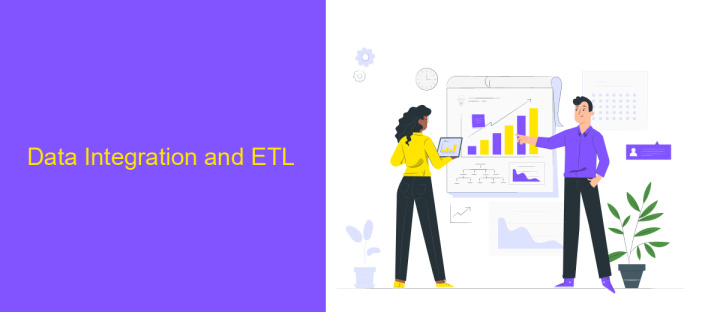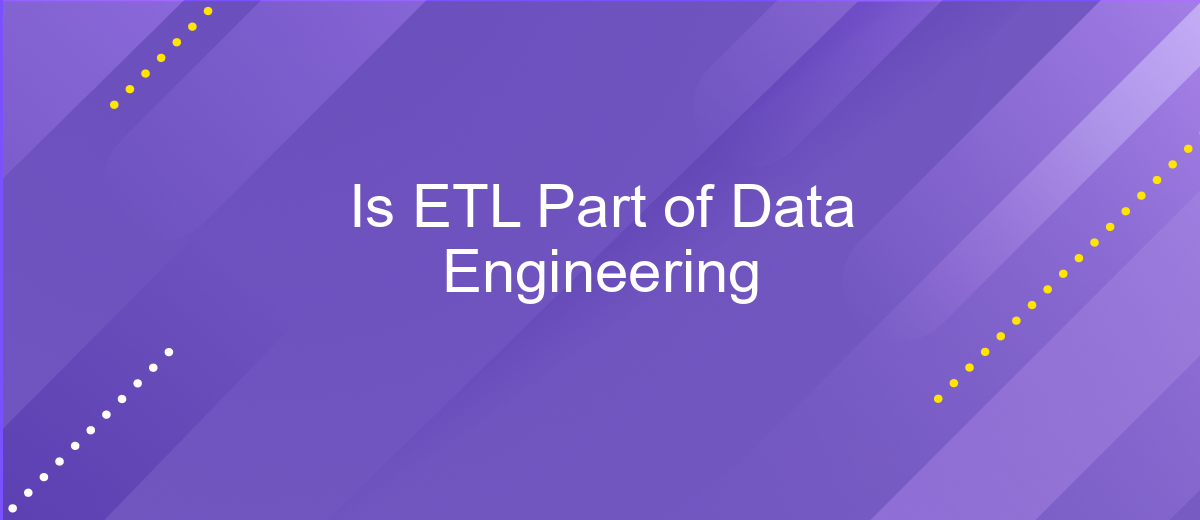Is ETL Part of Data Engineering
In the rapidly evolving field of data engineering, ETL (Extract, Transform, Load) processes play a crucial role in managing and optimizing data workflows. This article explores whether ETL is an integral component of data engineering, examining its significance, applications, and how it fits into the broader landscape of data management and analytics.
Introduction
Data engineering has become a cornerstone in the modern data-driven landscape, enabling organizations to harness and leverage vast amounts of data. One of the critical components within this field is ETL (Extract, Transform, Load), which plays a pivotal role in data processing and integration workflows.
- Extract: Gathering data from various sources.
- Transform: Converting data into a suitable format for analysis.
- Load: Storing the transformed data into a target system.
Understanding whether ETL is an integral part of data engineering requires a deep dive into its functions and how it complements other data engineering tasks. Services like ApiX-Drive can streamline the ETL process by automating data integration, making it easier for organizations to manage and utilize their data efficiently. This section aims to explore the significance of ETL within the broader scope of data engineering and its impact on data-driven decision-making.
Data Integration and ETL

Data integration is a crucial aspect of data engineering, enabling the consolidation of data from various sources into a unified view. This process ensures that data is accessible, consistent, and reliable for analysis and decision-making. ETL (Extract, Transform, Load) is a fundamental methodology within data integration, involving the extraction of data from disparate sources, its transformation into a suitable format, and finally, loading it into a target data warehouse or database. ETL processes help in cleaning, enriching, and structuring data, making it ready for downstream applications and analytics.
Modern data engineering leverages various tools and services to streamline ETL and data integration processes. For instance, ApiX-Drive is a service that facilitates the integration of different applications and data sources without the need for extensive coding. By automating data flows between systems, ApiX-Drive helps organizations maintain data consistency and accuracy, enhancing overall efficiency. Such services are invaluable in today's data-driven landscape, where timely and accurate data integration is pivotal for business intelligence and operational success.
ETL in Data Engineering

ETL, which stands for Extract, Transform, Load, is a critical component in the field of data engineering. It involves extracting data from various sources, transforming it into a suitable format, and loading it into a data warehouse or other storage systems. This process ensures that data is clean, consistent, and readily available for analysis and decision-making.
- Extract: Data is collected from multiple sources, such as databases, APIs, and flat files.
- Transform: The extracted data is then cleaned, normalized, and transformed to fit the schema of the target storage system.
- Load: The transformed data is loaded into the data warehouse, where it can be accessed for reporting and analytics.
Tools like ApiX-Drive can simplify the ETL process by automating data integration tasks. ApiX-Drive allows seamless data transfer between various applications and services, reducing the manual effort required in data engineering. By leveraging such tools, data engineers can focus more on optimizing data pipelines and less on mundane data movement tasks.
Benefits of ETL in Data Engineering

ETL (Extract, Transform, Load) is a cornerstone in data engineering, providing a structured approach to handling data from various sources. By extracting data, transforming it into a usable format, and loading it into a data warehouse, ETL processes ensure that the data is clean, organized, and ready for analysis. This structured flow is critical for making informed business decisions.
One of the primary benefits of ETL in data engineering is its ability to handle large volumes of data efficiently. ETL tools can automate the process of data integration, reducing manual efforts and minimizing errors. This automation is crucial for maintaining data integrity and consistency across different systems.
- Improved data quality and accuracy
- Enhanced data integration from multiple sources
- Streamlined data processing and transformation
- Scalability to handle growing data volumes
- Time and cost efficiency in data management
For businesses looking to integrate various data sources seamlessly, services like ApiX-Drive can be invaluable. ApiX-Drive facilitates the automation of data workflows, allowing companies to connect different applications without extensive coding. This ease of integration ensures that data is consistently updated and accessible, further enhancing the benefits of ETL in data engineering.
Conclusion
In conclusion, ETL (Extract, Transform, Load) is undeniably a critical component of data engineering. It plays a fundamental role in the data pipeline, ensuring that data is accurately extracted from various sources, transformed into a usable format, and loaded into data warehouses or other storage systems. This process is essential for enabling data-driven decision-making and maintaining data integrity across an organization.
Moreover, modern tools and services like ApiX-Drive have streamlined the integration and automation of ETL processes, making it easier for data engineers to manage complex data workflows. By leveraging such services, organizations can enhance their data integration capabilities, reduce manual intervention, and achieve more efficient and reliable data operations. Thus, while ETL remains a core aspect of data engineering, the evolution of integration tools continues to simplify and optimize the overall data management landscape.
FAQ
Is ETL Part of Data Engineering?
What are the main components of ETL?
Why is ETL important in data engineering?
Can ETL processes be automated?
What skills are needed for ETL in data engineering?
Routine tasks take a lot of time from employees? Do they burn out, do not have enough working day for the main duties and important things? Do you understand that the only way out of this situation in modern realities is automation? Try Apix-Drive for free and make sure that the online connector in 5 minutes of setting up integration will remove a significant part of the routine from your life and free up time for you and your employees.

